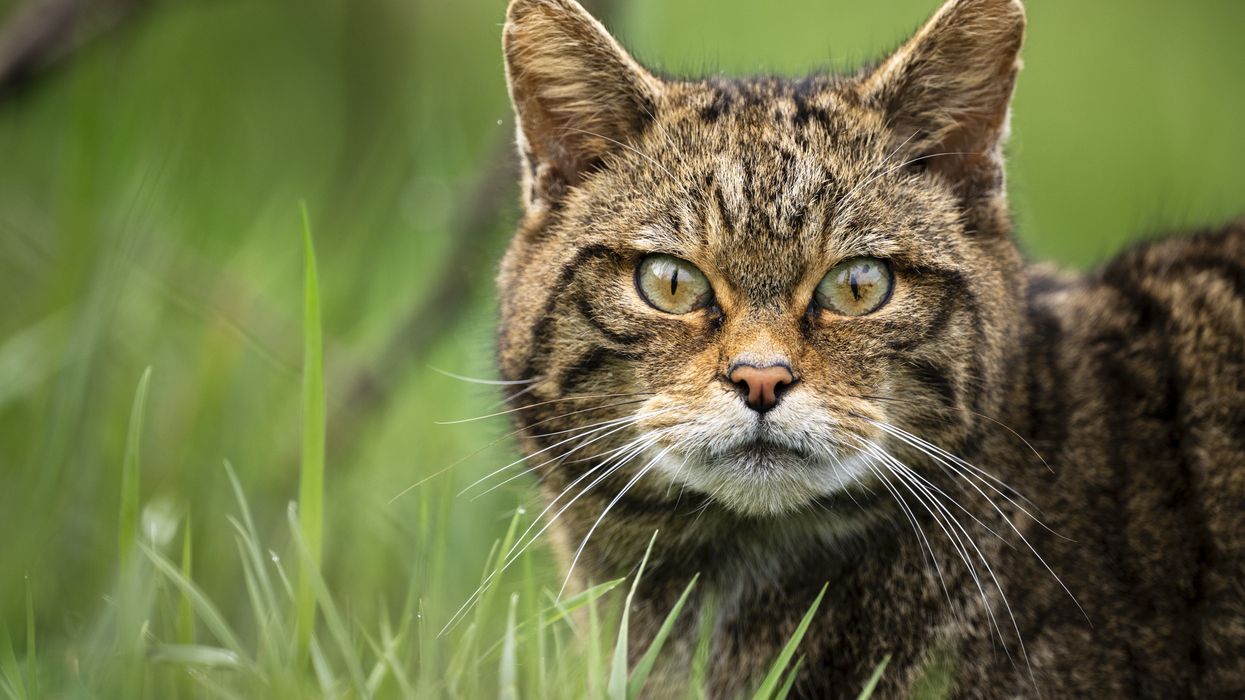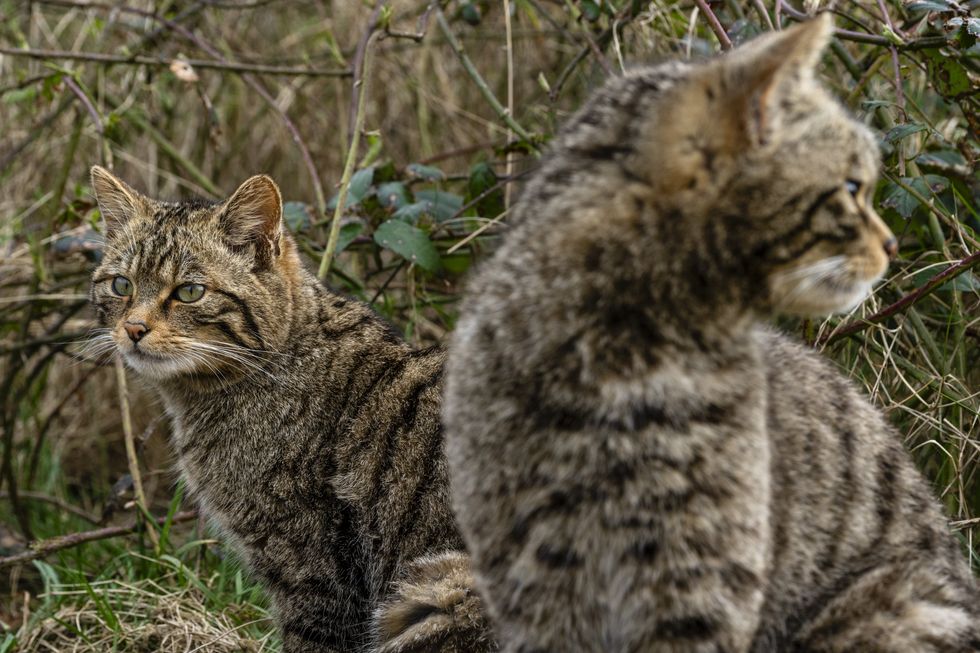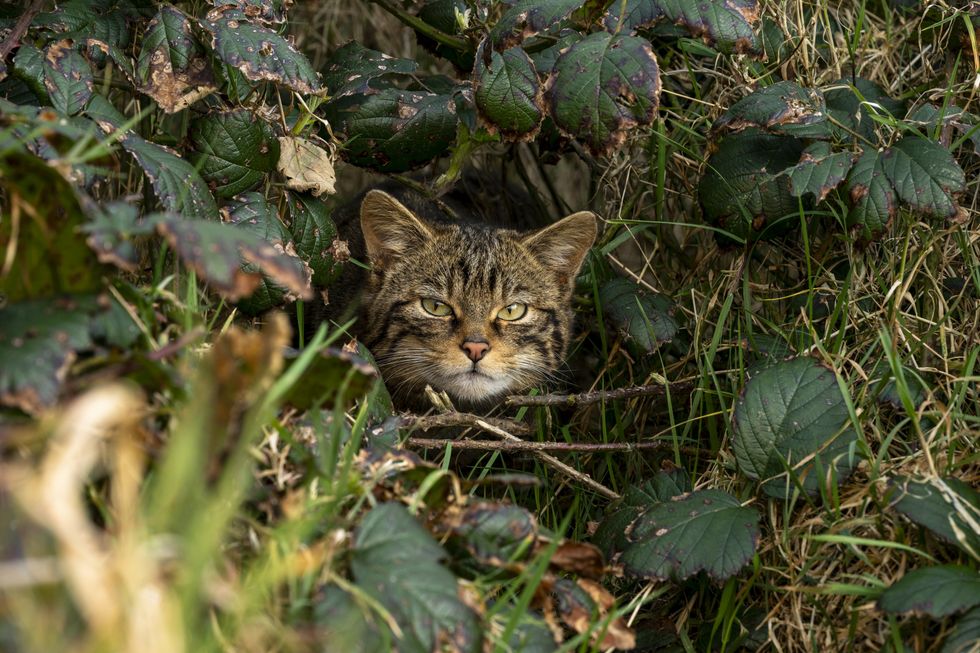Extinct wildcats once widespread throughout Britain now returning to England after over a century

Wildcats went extinct from England in the 1800s
|PA

The species has only survived in Scotland but is critically endangered
Don't Miss
Most Read
Wildcats, once widespread throughout Britain before becoming extinct in England, will be making a return after a century.
A comprehensive two-year investigation has determined that Devon possesses the appropriate environment to sustain a thriving population of European wildcats, marking a potential milestone in British wildlife conservation.
The South West Wildcat Project, spearheaded by Devon Wildlife Trust alongside Forestry England and the Derek Gow Consultancy, has identified sufficient woodland habitat across the region to accommodate between 40 and 50 of these critically endangered mammals.
The feasibility study examined multiple factors including effects on local communities, existing wildlife, agricultural interests and domestic animals.
It concluded that a controlled release programme could proceed, though not before 2027.
Britain's sole remaining native feline species vanished from England's countryside over a century ago, with the final individuals believed to have survived on Exmoor until the mid-1800s.
Research conducted by the University of Exeter revealed overwhelming public enthusiasm for the proposal, with 71 per cent of 1,000 residents surveyed across the South West expressing support for wildcat reintroduction.
A separate online consultation garnered even stronger backing, with 83 per cent of 1,425 participants favouring the return of these mammals to their former range.

Research conducted by the University of Exeter revealed overwhelming public enthusiasm for the proposal
|PA
The Devon landscape provides ideal conditions for wildcats, featuring extensive woodland crucial for shelter and breeding sites.
The area's low-intensity grasslands and scrubland create optimal hunting grounds.
The habitat assessment identified adequate prey availability, including voles, rats, wood mice and rabbits, which comprise approximately 75 per cent of wildcat diets.
The region also benefits from minimal urban development and few major roads, reducing potential human-wildlife conflicts.

The Devon landscape provides ideal conditions for wildcats, featuring extensive woodland crucial for shelter and breeding sites
|PA
Conservationists anticipate that reintroducing wildcats would restore ecological balance by managing populations of destructive species, particularly non-native grey squirrels, thereby promoting woodland biodiversity.
The feasibility study established that wildcats present negligible danger to humans, domestic animals or agricultural livestock.
Existing protective measures employed against foxes would prove equally effective for safeguarding poultry.
Cath Jeffs, who leads the South West Wildcat Project at Devon Wildlife Trust, emphasised the species' role in ecosystem restoration: "They're critically endangered, why should we not bring them back, they were here and the reason they're not here is because of persecution. They are part of our natural heritage."
The research confirmed that vulnerable species including bats and hazel dormice would face no significant threats from wildcat reintroduction, addressing conservation concerns about potential impacts on existing endangered wildlife.
Interbreeding between wildcats and domestic or feral cats poses the primary obstacle to successful reintroduction, potentially compromising the genetic integrity of the species.
Tim Bonner, chief executive of the Countryside Alliance, warned that establishing a genetically pure wildcat population would prove challenging: "Reintroducing wildcats in the south-west without addressing this issue would seem to be doomed to failure."
Devon Wildlife Trust acknowledged these concerns, proposing collaboration with animal welfare organisations to implement comprehensive neutering programmes in reintroduction areas.
Ms Jeffs stressed that extensive stakeholder engagement remains essential: "A lot of work remains to be done before the first wildcats could be released in the South West. Honest and open dialogue with stakeholders will be key."
The trust confirmed no immediate release plans exist, but remains committed to developing funding and implementation strategies for the scheme.










